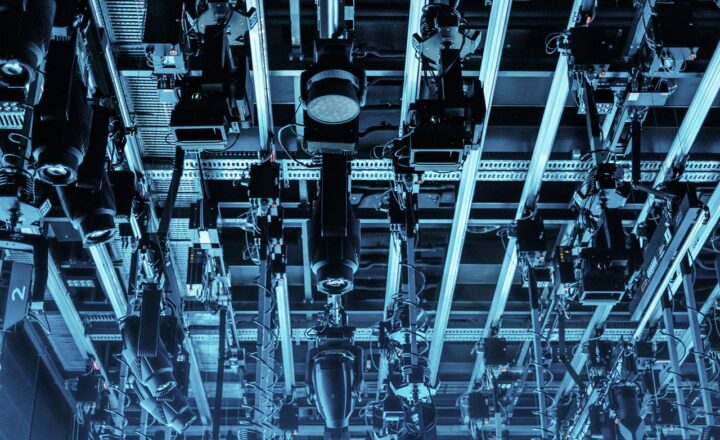The Story of the Fax Machine and Why It’s Still Used in Surprising Places Today
November 15, 2024
The fax machine, once considered cutting-edge technology, has seen its glory days fade amidst the rise of email and digital communication. Yet, even in today’s digital age, the fax machine remains a vital tool in various sectors, from healthcare to legal institutions. This article delves into the storied history of the fax machine, its significance, and the reasons for its continued relevance.
1. A Brief History of the Fax Machine
The origins of the fax machine date back to the early 19th century. The first fax-like device was invented in 1843 by Scottish inventor Alexander Bain, who created a machine capable of transmitting written messages over a wire. However, it wasn’t until the late 20th century that fax machines became commonplace in homes and businesses.
In 1924, AT&T introduced the first commercial Fax machine known as the “Telefax.” These devices used a process called scanning and transmission to send documents over the telephone lines. Throughout the 1970s and 1980s, improved technology helped the fax machine gain popularity, and by the 1990s, businesses relied heavily on it for communication.
2. The Mechanics of How Fax Machines Work
Fax machines operate by scanning a document line by line and converting it into a series of electrical signals. These signals are transmitted over telephone lines to another fax machine, which then reconstructs the signals back into a physical document. The steps involved include:
- Scanning: The fax machine scans the document, detecting variations in light and dark to encode information.
- Transmission: The electronic information is split into separate data packets and sent over the phone line.
- Reception: The receiving fax machine interprets the data packets and prints the document on paper, maintaining the layout of the original document.
This sophisticated, yet simple process is what made fax machines incredibly popular in office settings.
3. Why Fax Machines Are Still in Use Today
Despite the ubiquity of email and digital file sharing, several key factors contribute to the continued usage of fax machines in various industries:
- Legality and Security: In certain sectors, especially in healthcare and legal fields, faxes are considered a more secure and legally binding means of communication. Many organizations prefer fax when transmitting sensitive information, as it reduces the risk of data breaches that can occur with email or other digital methods.
- Compliance Regulations: Legal compliance is often easier with fax machines. For example, in healthcare, the Health Insurance Portability and Accountability Act (HIPAA) emphasizes secure patient data transfer, leading many organizations to opt for faxes instead of emails, which may not be encrypted properly.
- Infrastructural Limitations: In some regions or industries, the digital infrastructure may not be robust enough for reliable internet communication. In these cases, fax machines provide a reliable solution for sending documents without the need for sophisticated technology.
- Familiarity: Many professionals have been using fax machines for decades and prefer this traditional method due to familiarity and ease of use. For those less comfortable with newer technologies, faxing remains a practical option.
4. Surprising Places Where Fax Machines Are Still Used
The persistent usage of fax machines can be seen in several unexpected sectors:
- Healthcare: Healthcare professionals often use fax machines to transmit confidential patient information. Hospitals and clinics routinely send patient records, prescriptions, and test results through fax to ensure secure communication.
- Legal Field: Faxing is still a common practice among lawyers for signing contracts, submitting legal filings, and sharing documents with clients and courts, as it provides an immediate and verifiable method of communication.
- Real Estate: Real estate agents frequently rely on fax machines to send and receive contracts, offers, and disclosures, ensuring that transactions are processed promptly and securely.
- Government Agencies: Many government departments continue using fax machines to transfer sensitive information efficiently while adhering to compliance regulations for security and record-keeping purposes.
5. The Future of the Fax Machine
The fax machine may not be at the forefront of communication technology, but it has certainly carved out a niche for itself. Innovations such as electronic faxing and e-fax services have emerged, allowing users to send and receive faxes via email and the internet, effectively merging traditional faxing with modern technology.
While the rate of usage may decline with the rise of faster, more efficient methods of communication, the fax machine is likely to remain an important tool for organizations that prioritize security, compliance, and simplicity.
Conclusion
The fax machine’s journey from revolutionary invention to stalwart in office settings exemplifies how technology can mesh with functional needs over the decades. Despite being overshadowed by more modern communication alternatives, the fax machine’s continued use in healthcare, legal, and government sectors showcases its unique advantages. In our fast-paced digital world, it serves as a reminder that sometimes, the old ways aren’t just old—they’re reliable, secure, and necessary.






